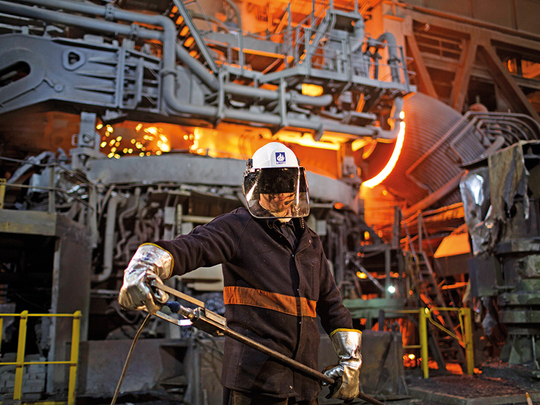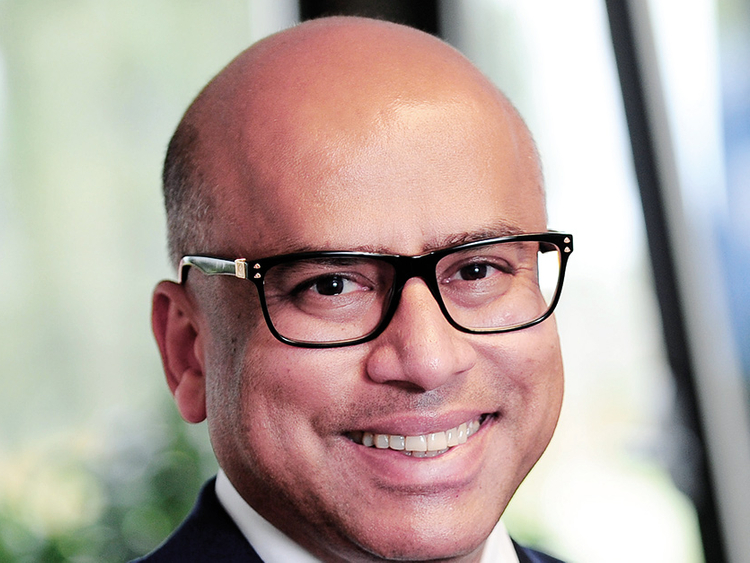
Dubai: In terms of corporate rescue acts, Liberty House’s recent effort is all steel and grit.
The specialist commodities firm didn’t just swoop in and rescue an ailing plant when it acquired the speciality steel division of Tata Steel UK for 100 million pounds (Dh476 million). It managed to do so by retaining the 1,700 jobs at the latter’s UK operations and two distribution facilities in China. And now, it plans to create another 300 jobs in the UK.
But for an industry mired in a supply glut and traditional powerhouse China still groping for ways to cut down its massive capacities, can Liberty House pull off the next episode in the turnaround story? According to Sanjeev Gupta, Executive Chairman, it sure can.
“Yes, there continues to be excess iron ore output and blast furnace capacity in the world ... so inevitably steel prices will drop,” said Gupta. “However, our Greensteel model is cycle-proof. It involves a short domestic supply chain of scrap that is always competitive against the alternative of exporting this scrap.
“There are no imports involved in the process and no price position — so the spread is constant. With the right business model and an innovative approach, UK steel and engineering can recover and thrive.”
The deal came about after Tata Steel UK announced last year that it was pulling up sticks after losses kept mounting at its main site, Port Talbot. If that plan had gone according to script, it would have meant job losses of well over 10,000. But then later Tata Steel UK decided to stick it out and only sell some of the interests as part of a hoped for turnaround. Negotiations to find buyers for key lines was never a smooth ride, but, finally, it managed to get Liberty House in for the speciality steel division. (Another part — the long products division — was sold to the fund operator Greybull.)
Since the deal was announced in February, the Speciality Steel operations have been “improving steadily and is already close to break even”.
“Through better utilisation of plant, improved productivity and the addition of new lines, we intend to increase output in a competitive way,” said Gupta. “This will allow us to increase our share of the UK market for key products substantially, in addition to re-entering markets in the US and EU. “We also believe we can regain lost share of the European market for bright bar and boost sales to the UK auto-component sector, of which Liberty itself is a growing part. Added to this, we will grow our position in the aerospace market, following significant recent investment in advanced steel processing units at Stocksbridge. We believe this is a fundamentally profitable and sustainable business, and one that is closely aligned to our current markets and customers.”
In the near term, Liberty House plans to make a capital investment of 20 million pounds on new equipment and upgrade the existing in the first full year of operations. There may even be an initial public offering (IPO) “at some point, either in the UK or US ... but we would retain a majority holding and have no thoughts of an exit.”
As for the wider industry itself, any upcoming upturn will not be a smooth affair. Protectionist sentiments over steel imports are rife, with the US making a deliberate point that its domestic producers need to be given priority in infrastructure projects.
“While we’re opposed to protectionism because it simply breeds inefficiency, we certainly see the advantages of making and processing local steel for local consumption,” said Gupta. “That is steel produced close to the downstream manufacturing operations that use the mill output for their end products.
“That’s why we’ve developed an integrated business in the UK, which combines both the upstream liquid metal production — using renewable energy and recycled raw materials — with downstream engineering and manufacturing in a way that increases competitiveness and makes domestic industry more sustainable.
“Speciality Steels [will] also produce a distinct range of high-value products that are wanted the world over. So, we are confident that, not only will we continue to compete effectively in these global markets, but we will expand marketshare.
“Regarding the US, we see new opportunities emerging for domestic producers in that market and are currently in the process of acquiring major US assets. That will enable us to replicate our UK business model over there.”
And it is something Liberty House will be scouting for in the Middle East too — “We won’t be more specific just yet ... we can say that we are interested in steel plants in the Middle East, especially where these are allied to locally available natural resources such as gas,” Gupta said.
BOX
UK steel industry can cope in a post-Brexit scenario
Brexit — even the hard version of it — will alter some key fundamentals within the UK.
And one such would be “creating a new and more positive attitude towards domestic industry in the UK,” said Sanjeev Gupta of Liberty House. “It will increase awareness of the need for a strong independent industrial base in the UK and the importance of rebalancing the economy towards manufacturing, having gone too far in the other direction over the past 40 years.
“We don’t see Brexit as a threat because on one hand we’re looking at melting domestic scrap to serving UK markets with steel and engineered products and, on the other hand, we’re looking at export of unique high-specification products which are not price-sensitive.”













